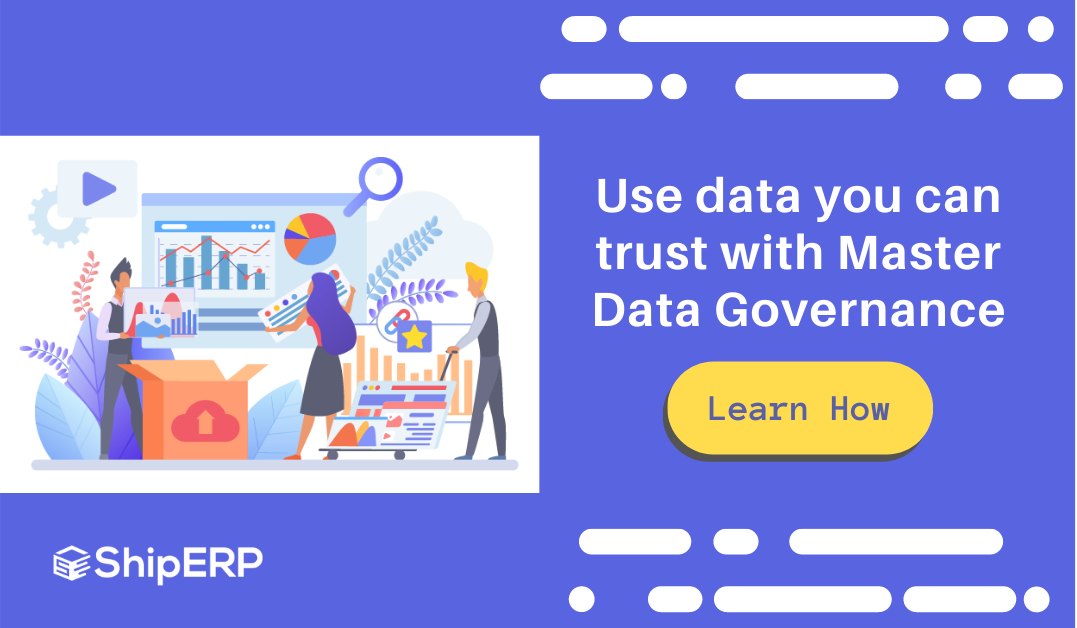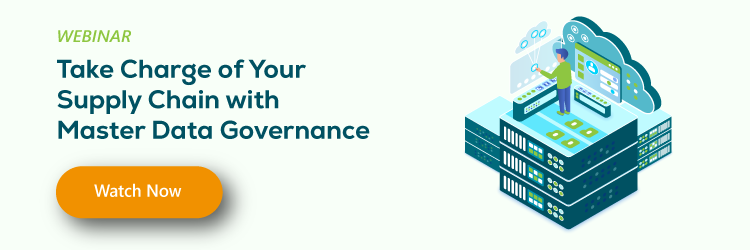
Master Data Governance: Proven Best Practices
Without high-quality data, your business decisions are based on inaccurate information! Boost your overall business performance with best practices for master data governance.
As technology improves over time, businesses who adapt and acquired that technology are better informed and connected than ever. They leverage the high volume of available business information to gain actionable insights. Business data and analytics are important to business operations, especially for wise decision-making; however, companies are making bad decisions based on poor data.
According to Gartner research in 2019, the average financial impact of poor data on companies is at least $15 million per year. Unfortunately, companies don’t recognize whether the decisions they’re making is a good one until later.
So, how can your company avoid poor decision-making? By ensuring your data is valid and accurate!
In this post, we’ll tackle the basics of master data governance, how it relates to SAP and the supply chain, and its best practices. Read on!
What is Master Data Governance (MDG)?
Before getting into master data governance, let’s understand what the master data is. The master data is the core information within an enterprise that describes how business in conducted. Master data can include pieces of information on customers, products, locations, etc.
While there’s a high volume of available data, you don’t need all pieces of information to continue doing business. It’s up to the company to decide which data are reusable and most valuable to maintain.
Because the data crosses various divisions, it can become duplicated, fragmented, and out-of-date. The decrease in quality of business information eventually leads to the need for accurate and consistent data.
That’s where Master Data Governance (MDG) comes in. MDG refers to the management or handling of data within a system that are shared across organizational departments.
To improve data quality, MDG standardizes definitions of data terms and usage, eliminate duplicate information, and update fragmented data to provide a “single view of truth” across all departments.
A Lack of Master Data Governance Leads to:
- Slower time to market
- Inefficient supply chain processes
- Decreased customer loyalty
- Higher cost of compliance
- Poor marketing and sales efforts
How do you know if you have a master data problem?
The common issues caused by poor-quality data include high maintenance costs, loss of revenue, dissatisfied customers, and compliance issues. Sounds familiar?
How to tell if you need data governance in your business:
- You’re getting data from multiple sources: If your company has grown in size, maybe your data became decentralized and stored in various places across multiple systems. It takes time and effort to find the data you need, and this inefficient process does affect your business in the long run. You must consolidate the information into a centralized platform to fully optimize the information into valuable and actionable insights.
- Your cart abandonment rate is high: It’s a sign that your company is not providing the right value to customers due to either a lack of inventory or a slow fulfillment period. Do your research to find if your company’s customer service department have problems providing information and service your customers need. Understand that data affects every step of the buyer journey.
- You’re forecasting is inaccurate: Do you find that your data doesn’t accurately predict the market trends and customer expectations well enough? Unfortunately, you won’t know this until after you’ve made your decisions and the predictions don’t come as your analytics told you. You’ll find that you start trusting the data less and less. With governance, your company can ensure authentic foundational data.
What are the benefits of Master Data Governance (MDG)?
Improving your data quality will streamline your processes and boost your overall business productivity and performance. Clean up your data to ensure that your company has a good foundation for future decision-making.
Master Data Governance can empower you to:
- Reduce reporting errors based on bad data by increasing its accuracy
- Eliminate operational and inefficiency costs
- Enhance transparency of information for quick and easy access
- Ensure seamless collaboration across departments with an integrated source of data
- Increase accuracy of predictions and forecasting to avoid loss of revenue and customer loyalty
- Enable easy data edits with only one source of data to avoid inconsistency
- Better comply with data regulations to avoid penalties, security breaches, etc.
- Maintain customer loyalty with accurate information
The benefits above apply to all companies. High-quality data isn’t limited to just a few industries. All companies rely on business data to successfully operate and plan accordingly for the future. With governance, you improve productivity and operational efficiencies by providing consistent and reliable master data across your company.
How can Master Data Governance improve Supply Chain & Logistics?
MDG should be at the core of your supply chain and logistics strategy. Supply chain performance depends on consistent definitions of customers, products, locations, and more.
The importance of master data in logistics is only growing. First, supply chain performance face pressures from competition, compliance, and social responsibility. Second, companies are increasingly expected to understand their customers’ needs and, therefore, rely on behavior data. Third, a focus on collaboration between partners require data consistency for improved performance.
So, what kind of logistics data should you pay attention to? For starters, we suggest:
- Shipping notifications
- GPS traces
- Customer information
- Production flow signals
- Inventory levels
- Quality test logs
- Point of sales data
With high-quality and easily accessible data, your supply chains become competitive and efficient which allows resources to be allocated to innovation rather than solving problems that would’ve been avoidable.
Why is Master Data Governance (MDG) important to SAP functional personnel?
For SAP functional personnel, integration projects are crucial to execute well. Both small and large products, first and foremost, require standard and consistent data.
If you’re moving to an ERP system like SAP S/4HANA, understand that a common misconception is that the ERP system would provide standard, consistent data across your network. On the contrary, an ERP tool is not a one-stop solution for data management. Conducting an audit of your business data is the most important step to prepare for a S/4HANA migration. You want to migrate to a new environment with clean data for a fresh start.
Not only does SAP projects require high-quality data, SAP itself offers a Master Data Governance solution. With a single solution, you gain a single, trusted view of your data to address any operational challenges head on.
If you’re strategizing a digital transformation with SAP products, it’s pivotal for you to get your fractured and inconsistent data under control before you do so!
Master Data Governance (MDG) Best Practices
Having accurate and consistent information on products, suppliers, customers, etc. helps optimize your processes. Here’s a few best practices for master data governance:
- Standardize format and values in a master data list: One of the first few steps in managing your master data is defining common attributes cross the organizations, like name and address in the customer domain
- Consolidate duplicate data by matching information from all sources: After you standardize all information, it’s easier to match data and combine duplicates. With a clean master data, you can avoid pitfalls like sending bills or marketing material to the wrong address which would lower customer satisfaction.
- Maintain a master list with an MDG solutions: An MDG solution like SimpleMDG can ensure you gain high-quality data in SAP. It can provide a comprehensive governance process with business rules to prevent incompliance data from becoming transactional and operational.


